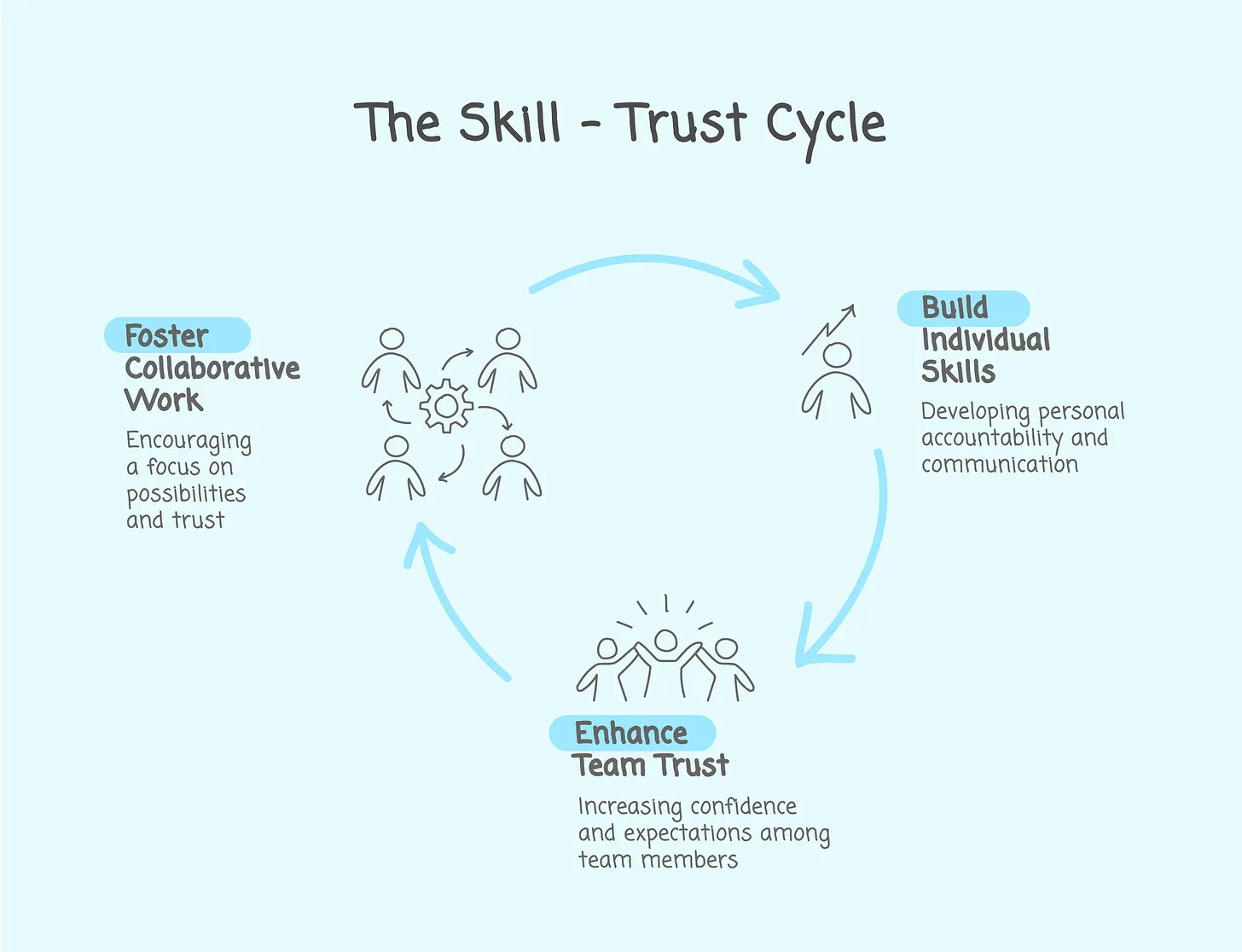Communication and Culture
How I learned about a deeper connection between the two
"You know, Paul, communication IS culture".
This was just one sentence of many in a really interesting discussion I had last week with
, founder of Detangle, but it was enough to cause me to put my cup of tea down for a minute.Communication IS culture. Do I agree with that?
A week later, I think I know the answer to that question, which I will get to, but first, I want to explore what we mean by communication in today's workplace and why it's become perhaps the single most important durable skill.
Communication as a Work Skill
If you've looked at a job description recently, you've almost certainly seen a phrase like "excellent written and verbal communication skills needed". In fact, our research has found that this is the number one durable skill employers request.
But it wasn't always this way.
Back in the day, only a few people needed great communication skills in the workplace. Someone was needed to write a clear job description, but once that was defined, it was just a case of an employee understanding it once and executing against it. Leaders might need to communicate well verbally, but if anything was going to be written down, it would go through people who actually knew how to write.
But today, even if we are not on Substack or YouTube, we are all mini content creators - in every text message, every voice note, every e-mail. As work has become more unstructured and ambiguous, we need to be better at communicating what we are doing, why we are doing it, what's working well, what problems we are facing, and what help we need.
Work has also become way more distributed, to the point where almost all of us spend some time communicating and collaborating with people who are not in front of our noses.
Oh, and sometimes it's not just practical dry communication that is needed. As
discusses in To Sell is Human: The Surprising Truth about Moving Others - all of us today are in some way shape or form in the persuasion game. If we are going to be successful, we need help from others. If we are going to get that help, we need to be good at creating emotional connections and telling stories so that people actually care.So communication is important, actually vital, as a practical work skill, but is it more than that?
Communication as Behavior
"Actions Speak Louder Than Words"
Anyone with a teenage child probably likely understands the truth of this statement. Our kids have an innate ability to pick up on a set of broader signals that we send with our own behaviors, and sense the inconsistency between them and the words that come out of our mouths. So, if we wonder why our children behave in a particular way, a great place to start is often the mirror.
And the same phenomenon happens in the workplace. Multiple studies have shown that employees mirror the behavior of their leaders, in everything from speech patterns to the time they leave work. In the vast majority of situations this is not a conscious behavior, it's a result of mirror neurons in our brain at work. This is very helpful in many cases, as it helps us rapidly learn all kinds of behaviors, but it should also give us pause.
Yes, we communicate by what we say, and how we say it, but we also communicate by what we do, and how we do it.
Communication and Trust
A few newsletters back I wrote about Why Trust is Breaking Down in the Workplace, and mentioned Stephen M.R. Covey's book, The Speed of Trust - The One Thing that Changes Everything.
One of the key ideas in the book is the difference between intent and behaviors. Here's a brief summary of the concept (paraphrased for simplicity).
When we look at ourselves, we see everything in high definition - not just what we are doing (behavior) but why we are doing it (intent). But when we look at others, our view is low definition - perhaps just an action they performed, or a message they sent. So, we do what humans do really well - fill in the rest of the picture ourselves. That activity helps things make sense, but unfortunately we do it by making assumptions, which are typically strongly influenced by our own prior experiences, fears and anxieties.
A key point here is that everyone does this naturally as part of being human. To make it real - imagine you agree to go out next weekend with a new friend, but an hour before you are due to meet you receive a short text message - "can't make it, see you soon."
That's limited information, so now it's time for your brain to “helpfully” fill in those gaps. Perhaps your new friend found something more interesting to do. Perhaps they aren't interested in a friendship. Perhaps they don't like you at all!
Thousands of small interactions like this happen every day in an organization, so it's not surprising that trust can break down.
So IS Communication the Same as Culture?
One broadly used definition of organizational culture is "the shared values, beliefs, attitudes, and behaviors that shape how employees interact, make decisions, and work together."
In my company, we choose a simpler definition which is:
Culture is how individuals and groups behave when no one is looking
Regardless of the definition you choose, you will probably find it to be broader than just communication.
But what Cioré helped me see is that while it may not be identical to culture, it's deeply and closely linked to it, so much so that it's often functionally equivalent to it. After all, if communication includes the way we talk, behave and make assumptions about each other, that's pretty darn close.
And that's actually incredibly important, because it's not really possible to train people in your culture beyond explaining what it is, but you CAN train people to improve their communication.
How this Works in Practice
Even though we've not historically treated communication as identical to culture, we've certainly seen situations where improving communication does improve culture, even if that's not where things start.
Often organizations will come to my company with an employee retention issue. Perhaps leaving employees have mentioned a lack of growth opportunities as a reason for their departure, so we form part of the solution - giving people an opportunity to improve their durable skills, and with it, their likelihood of being promoted.
But when people begin to work their way through our programs, and perform their durable skills assessments, it sometimes becomes clear that the company has a clear issue with trust that permeates through the whole culture.
The good news is that durable skills and trust are closely related, as I've explained before:
But we can improve trust further by adding more specialized communication training - ideally all the way up to the top levels of the organization. The result isn't just employees that collaborate more effectively, it's a set of closer relationships, based on trust.
In other words, an improved culture.
Special Thanks
Thank you again to Cioré Taylor - your clear eyed view on communication helped me see something I've missed for many years.
I'd also like to thank the people who have influenced my thinking on company culture, through everything from intensive mentoring, friendship, interviews, or just casual conversations. These include George Anderson, Michele Volpi, Phil Libin, Kyle McDowell, Karen Ziegler, Lori Mazan, Sean Lemson, Shannon Plumb, Garry Ridge, plus many more. Basically if you have ever had a conversation with me about this, you've helped!





Great piece Paul! And thanks for mentioning me!